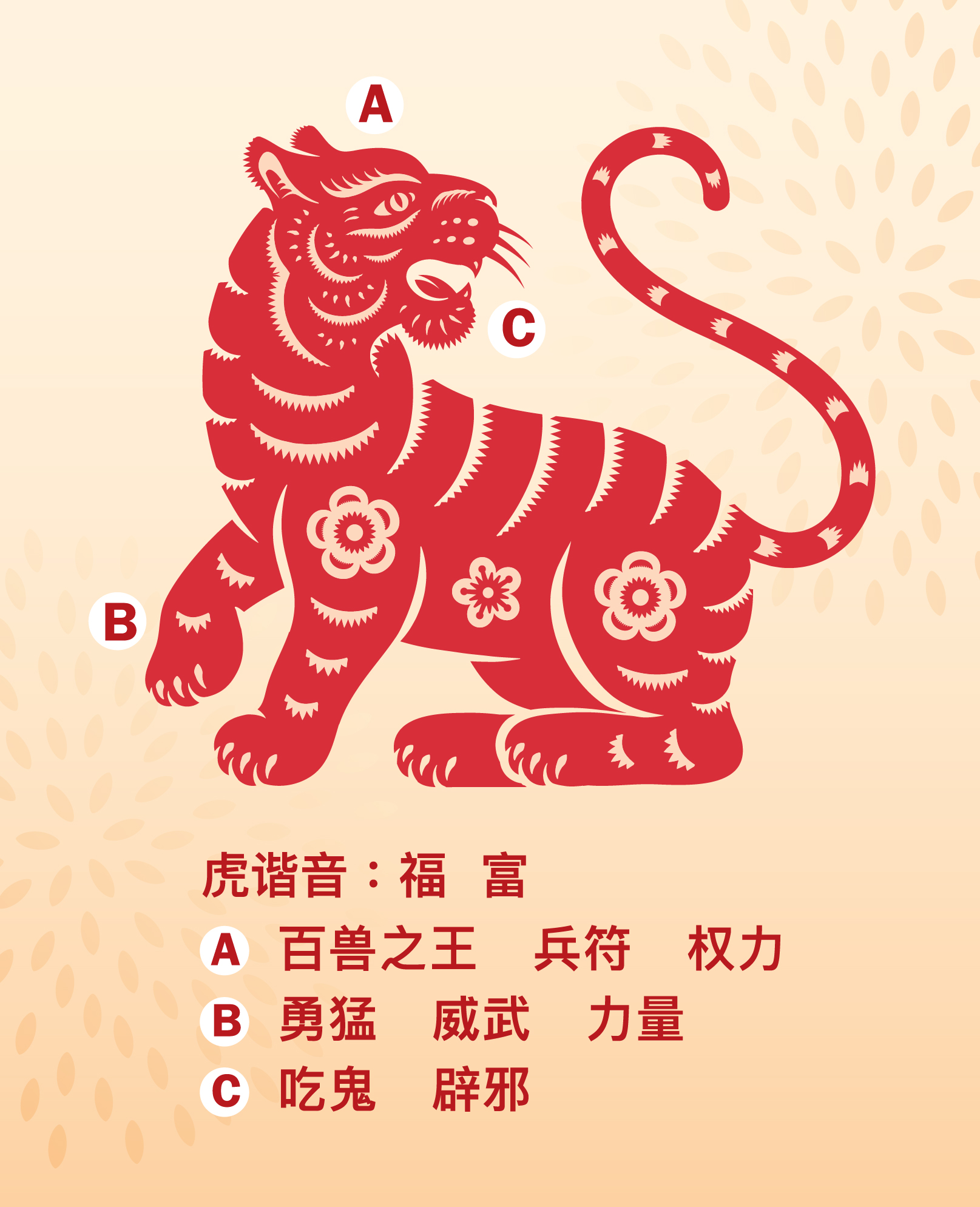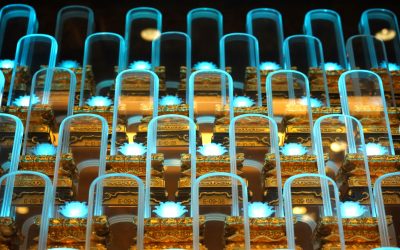Purchasing columbarium niche in advance in the Year of the Tiger
To seek for more blessings and longevity
The Tiger: The head of the twelve months
Master Phillip Wong says that there are two seniors in the twelve animals of the Chinese zodiac; namely the Rat and the Tiger. The Rat is the first of the twelve animals, while the Tiger is head of the twelve months.
“The Tiger ranks first in the twelve months. The so-called “Yin month” is a very important month because the first month is the Beginning of Spring; full of life and hope and also the beginning of a new year – a time to know how to plan ahead, avoid misfortune and all things negative, so that the heart can be ready to grasp the future and prepare as soon as possible.”
A year’s plan starts with spring. Lichun is the first solar term of each year. “Li” means “beginning”, and “Lichun” is the prologue of spring – marking the arrival of spring when everything revives – which is why people attach great importance to Lichun. 4 February 2022, 4:52 a.m. is Lichun – the Beginning of Spring – officially heralding the beginning of the reign of the Year of the Tiger.
Master Phillip Wong also teaches the method of drinking Yin-Yang water during Lichun. During Lichun (from 4/2/22 to 18/2/22 of this year), get up in the morning with a prepared cup of Yin-Yang water. Go outdoors or on the balcony with bare feet on the ground, face east and take a deep breath. Slowly swallow the Yin-Yang water while at the same time complementing it with positive meditation for better effect!
“Yin-Yang water is half a cup of boiled water from yesterday, with water boiled that morning mixed into a single cup. Yesterday’s water is Yin water and today’s water is Yang water. However, different zodiac signs have different numbers of drinks; 27 for Tiger, Dog and Horse; 16 for Monkey, Dragon and Rat; 38 for Pig, Sheep and Rabbit; and 49 for Snake, Ox and Rooster.”


Tiger signifies wealth and prosperity
The Tiger – one of the twelve animals of the Chinese zodiac – is the third of the Earthly branches. Since ancient times, the Chinese have revered the tiger, which is a symbol of strength, courage and justice, as well as a symbol of vigour, vitality and power. The tiger is known as the king of all beasts and is revered as one of the auspicious beasts in folklore. It represents good fortune and peace, and is a protector deity against disasters.
Master Phillip Wong pointed out that in Chinese homophonic culture, because the character for tiger is homophonic with “blessing” and “wealth”, it is entrusted with auspicious wishes of good fortune and wealth. The tiger is born with the courage and bravery of a king, and is endowed with vigour and vitality denoting life and breath, so that it later evolved into an auspicious symbol.
“In traditional folklore, the tiger can devour ghosts and ward off evil spirits, and during the New Year, people will put an image of the tiger on the door to bring harmony and peace to the household.”
The word “tiger” is also synonymous with strength. In ancient and modern times, people named after the tiger refer to heroes or things related to it. For example, “Hu Shi” is common name for warriors, “Hu Chen” implies brave minister, “Hu Jiang” means “Courageous General”, “Hu Fu” refers to decree for a general to dispatch troops, and “Hu Wei” means a military general’
Purchasing columbarium niches to promote longevity
Feng Shui and astrology has a set of theories called “Twelve Life Phases” which are used to describe the 12 processes of birth, growth, aging, sickness, death and decay of all things in the world. In other words, all things in the world are bound and influenced by the five elements, and the strength of the five elements will change with the passing of time and space. This in turn affects the rise and fall of all things in the world.
“The Twelve Life Phases are Growth, Childhood, Maturity, Adulthood, Pinnacle, Decline, Sickness, Death, Grave, Extinction, Conception and Nurture. In the five elements, the Growth of Fire and Earth falls on the “Yin” of the Earthly Branch, and the Adulthood of Wood is in the “Yin” of the Earthly Branch; therefore, the “Yin” of the Earthly Branch is the Growth position of Fire and Earth and it is also the Adulthood position of Wood, so the Tiger Year is also called the year of longevity.
According to Master Phillip Wong, Birth represents the beginning of vitality, like a newborn baby or a seed that has just sprouted which denotes a prosperous appearance.
“Therefore, if you purchase a columbarium niche in the Year of the Tiger, you will be able to multiply your life’s blessings and fortune.”
When people are alive, they pay attention to the Feng Shui of their home; after death, they long for a good resting place. Hence, many are starting to pay attention to choosing a good columbarium niche. Not only do people want to purchase a good columbarium niche for their departed loved ones, but more and more nowadays will purchase a niche while alive and write “长生禄位” or “长生位”to seek for blessings and longevity for their parents or themselves and also to have a good eternal resting place.
In traditional Chinese society – in order to repay the kindness of their parents for raising them – children hope to provide peace for their parents as well as avert misfortune and lengthen their lifespans by purchasing columbarium niches in advance. Many young people pre-plan for their parents while they are still alive and manage their eternal resting place in accordance to their parents’ wishes and pray for longevity.


National Recovery Plan
National Recovery Plan In response to the government's National Recovery Plan announcement, Nirvana Memorial Park branches and centres will be...
5 main advantages of pre-planning
5 main advantages of pre-planning for yourself You assume financial responsibility of your own funeral When the unthinkable happens, the financial...
Why make offerings of light?
Why make offerings of light? In its most basic context, the act of making an offering in Buddhist tradition enables one to practice generosity in...
The Feng Shui principles behind Sheng Ji
The Feng Shui principles behind Sheng Ji For the benefit of the layperson, the metaphysical art of Feng Shui can basically be divided into two;...
Ancestral Tablets
The significance of ancestral tablets Ancestor worship is a practice that occupies a supreme role in the religious and social life of Chinese...
The difference between columbarium and mausoleum
The difference between columbarium and mausoleum The words columbarium and mausoleum are sometimes used interchangeably but both terms actually...






















